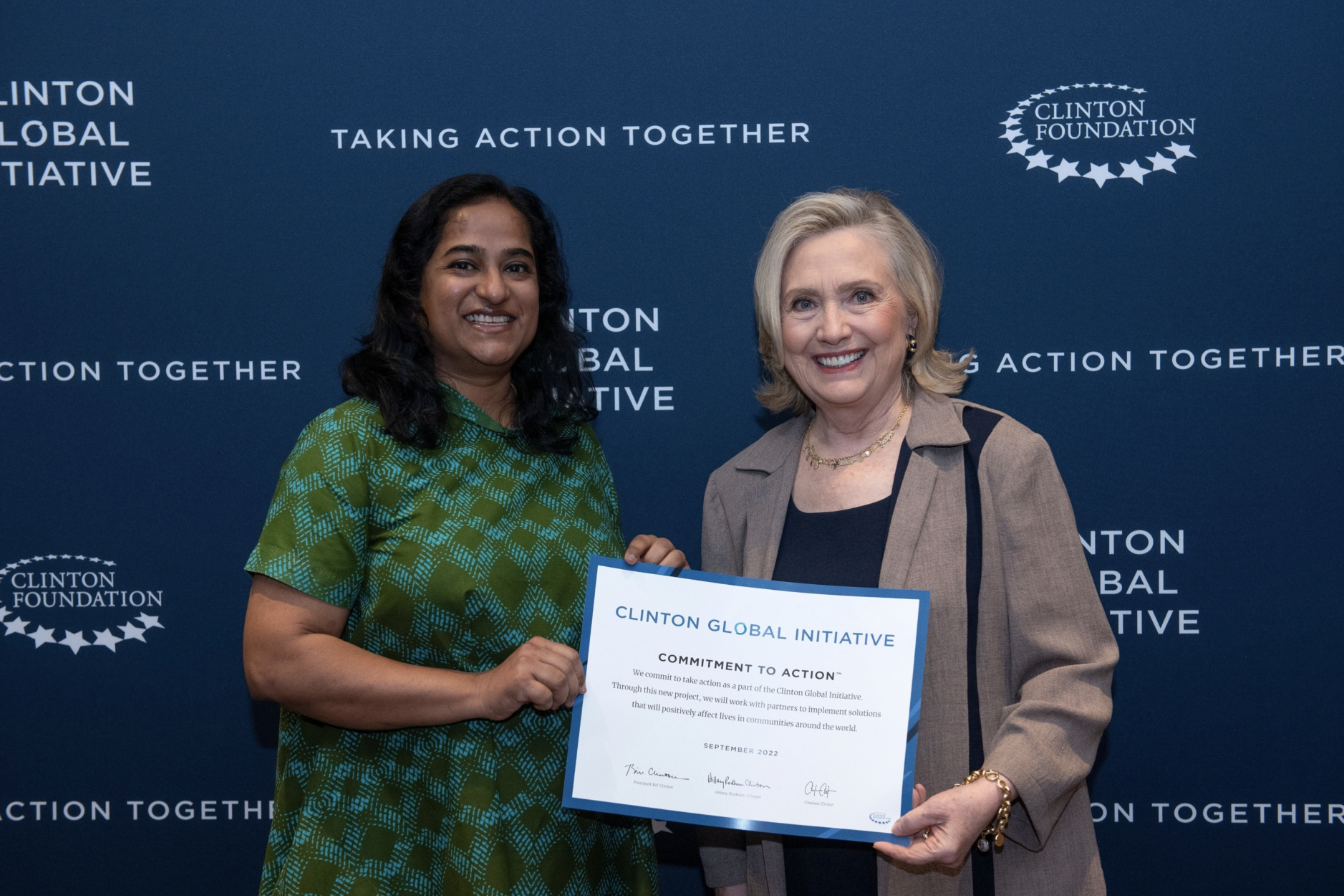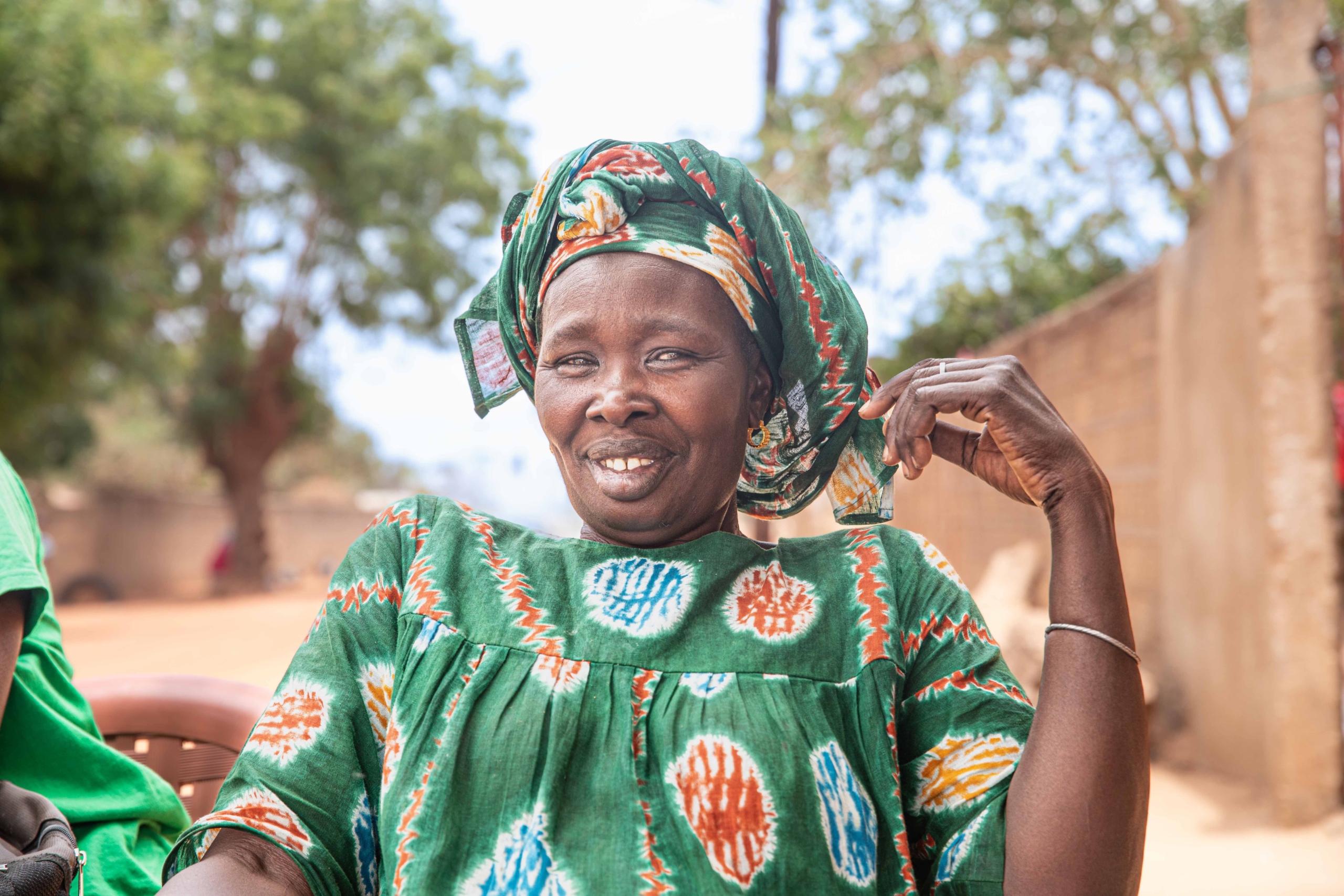myAgro is a Clinton Global Initiative Commitment to Action Partner–What Does that Mean for the Farmers We Work With?
In West Africa, there are 60 million farmers, a large proportion of whom live on less than $2 per day. The population of West Africa is growing faster than in any other region in the world, and food security has long been an entrenched problem that affects millions. Climate change is causing seasons to become shorter and more variable, making it harder for farmers to adapt their farming practices and grow enough to eat. Addressing these climate challenges requires an innovative approach from all industries and sectors. As a Clinton Global Initiative Commitment to Action partner, we are joined by other inspiring leaders who have made a combined total of 3,700 commitments to action that touch 435 million people in 180 countries.
What is myAgro’s commitment?

The Clinton Global Initiative (CGI) launched in 2005, as an initiative of President Bill Clinton, Secretary Hillary Rodham Clinton, and Chelsea Clinton to support partners in developing Commitments to Action, which are specific and measurable projects that make a positive difference in people’s lives all over the world. The Commitment to Action model offers partners a framework to translate goals into meaningful and measurable results—and to catalyze partnerships that support their efforts.
myAgro works with over 115,000 farmers in three countries, creating access to the high-quality seeds, training, and fertilizer needed to grow more crops; an increase in harvests directly translates into more income and better food security for these farmers’ communities.
Our commitment will help improve harvests, incomes, and, crucially, the climate resilience of 280,000 smallholder farmers—over half of them women—across 6,000 villages in Senegal and Mali. This will have a ripple effect that results in 2.24 million people having access to more nutritional food by the end of 2024. With this commitment, we are not only continuing on the path to reach 1 million farmers by 2026 but are committing to support farmers in adapting to the impacts of climate change.
What will this commitment mean for farmers and the communities we work in?
The magnitude and frequency of extreme weather events are expected to increase and this will have a direct impact on instances of hunger and the pervasiveness of poverty. The countries we work in and the farmers we work with have already begun to experience hotter seasons, less rain and/or unexpectedly heavy, concentrated rains, and, in the case of Senegal, a rise in sea level. Additionally, global volatility sparked by the war in Ukraine, inflation in food, fuel, and fertilizer prices, climate change impacts, and COVID-19’s lingering effects mean that West Africa could face the worst food security crisis seen in a decade. With these factors in mind, our commitment is designed to directly combat the impact of these realities and ensure farmers remain climate resilient and food secure.
With our commitment, we will change the lives of over 2 million people by the end of 2024 by:
- Providing 280,000 farmers with climate and shock-resilient packages. myAgro’s packages include climate-resistant seeds, high-quality fertilizers, small vegetable or fruit packets, light agricultural tools, and climate insurance. Additionally, myAgro also provides off-season products like chickens, moringa tree seedlings, and nutritional vegetables. These packages provide farmers with opportunities to earn income and increase nutritional diversity throughout the year, which can provide a safety net against climate shocks that come their way.
- Bringing more employment opportunities to villages. In order to reach our goal of 280,000 farmers, myAgro will train 6,000 village entrepreneurs (VEs) who will help farmers access myAgro’s seeds, fertilizer, and training. VEs have the opportunity to earn additional income while growing their professional skills and helping their community.
- Providing up-to-date, climate-focused training. Through a partnership with Bern University myAgro will provide farmers with training on agronomic practices and techniques that address climate challenges such as drought, pests, land degradation, and soil erosion.
What’s an example of how farmers’ lives are directly impacted?
Our commitment and our work will help change the lives of farmers like Diobé, a 57-year-old mother and farmer from Keur Thiaf, Senegal. Diobé wanted to increase her harvest but was purchasing uncertified seeds from the local markets which often presented many risks and challenges. Even though using these seeds made her growing season unpredictable, it was the only available option that she could afford.

This unpredictable harvest threatened Diobé and her family’s food security. Now, as a myAgro farmer, Diobé uses our climate-resilient seeds to cultivate okra, bissap, millet, and peanuts. Last year she planted ½ hectare of millet and got 33 bags from her harvest, compared to before myAgro, when she would only get around 15 bags. Today, she is able to store enough millet for her family and sell some at the local markets. With her higher income, Diobé is able to pay for her children’s school fees, invest in her boutique, and buy lambs every year to raise and sell for Tabaski, an important holiday in Senegal.
“What myAgro offers is great,” she shared. “It helps you to increase your income. It also allows you to be independent, to solve all your small problems, and those of your family.”
Want to read more about our CGI commitment and our experience at the event? Visit Forbes.com to read a piece from myAgro’s Managing Director, Deepti Mathew, reflecting on her experience.